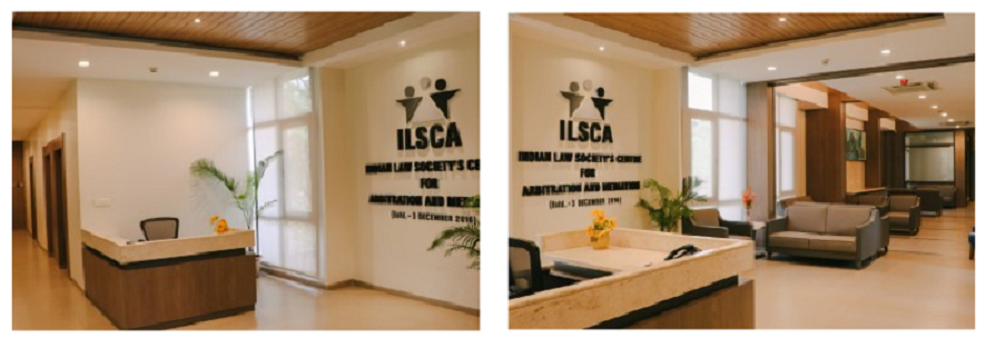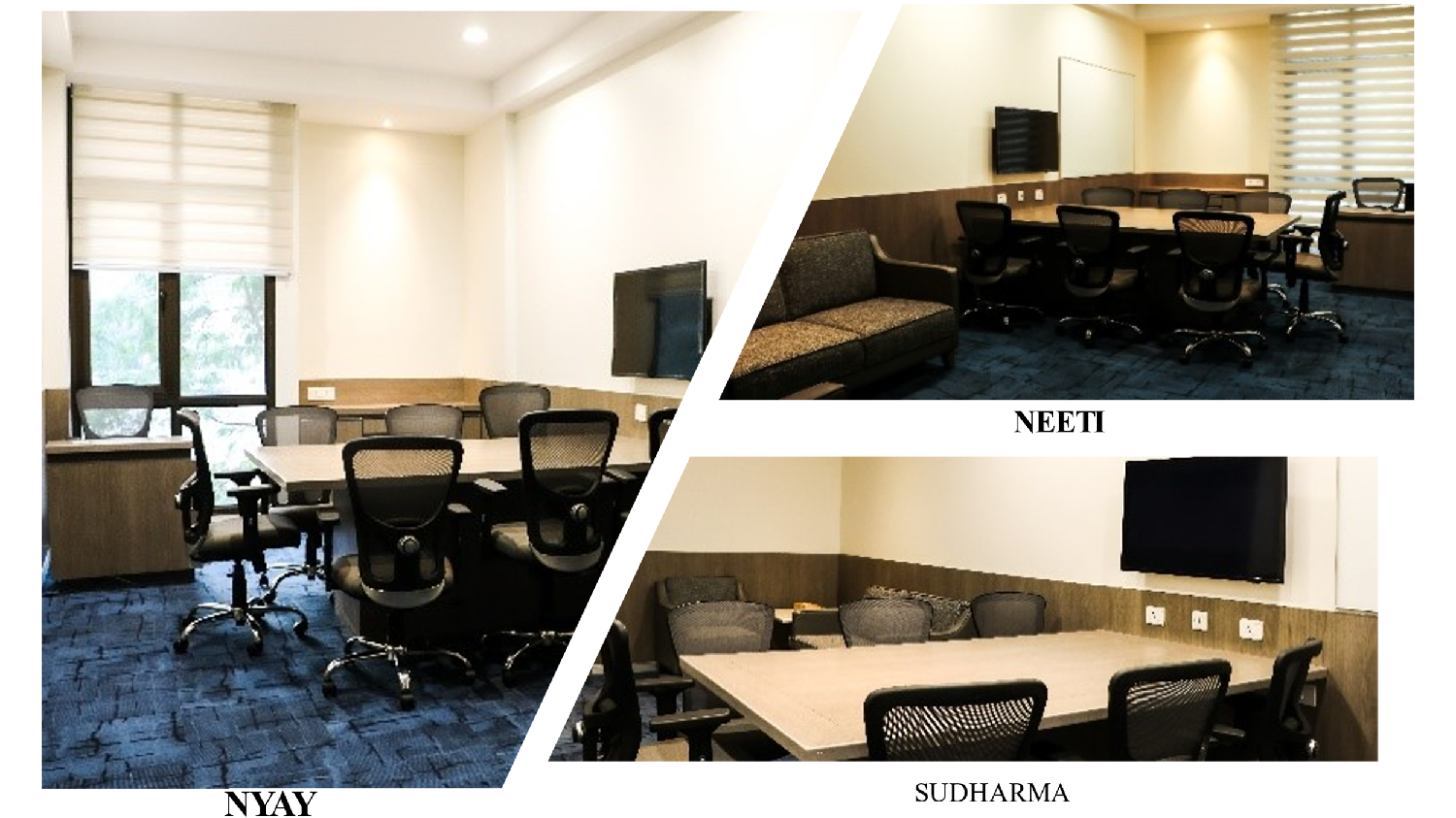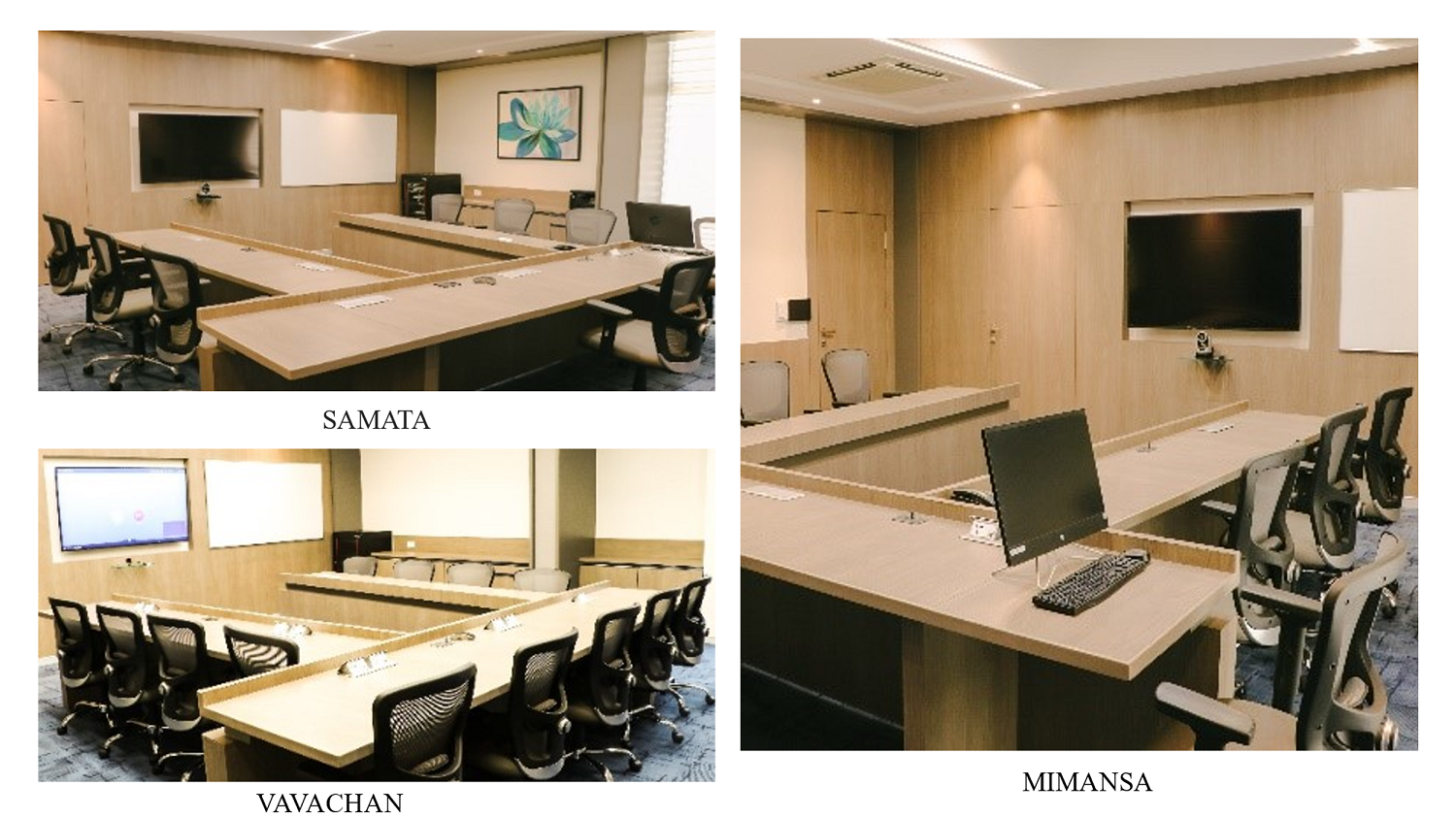Indian Law Society’ Centre for Arbitration and Mediation (ILSCA)
About ILSCA
The ILS Centre for Arbitration (ILSCA) was established on 3rd December 2016 by the Governing Council of the Indian Law Society. This Centre is established with the sole purpose of providing facilities for settlement of disputes through different methods of Alternative Dispute Resolution.
ILSCA is a first-of-its-kind arbitral and mediation institution in India, attached to ILS Law College which is a premier institution in the country, acclaimed for quality legal education with a prodigious history of nearly 100 glorious years of history.
The Management of the Indian Law Society recommended launching of the Centre to facilitate Institutional Arbitration and Institutional Mediation. It will be a joint effort between ILSCA, and the domestic and international business communities located in and around Pune and in Maharashtra generally.
ILSCA is established with the primary aim of administering and facilitating Alternative Dispute Resolution (ADR) services, both in domestic as well as international commercial arbitration and mediation. ILSCA has framed its own rules for facilitating institutional arbitration and mediation. ILSCA can also provide services for facilitating ad-hoc Arbitrations and Mediations.
Aims & Object of ILSCA
ILSCA is committed to promote a cordial and rational settlement of disputes between parties. It aims to create an environment in which people can work together to find long-term solutions to conflicts and tensions.
ILS envisaged ILSCA as a trustworthy, independent, efficient, and transparent Arbitration Centre, wherein the disputant parties could resolve disputes- by taking recourse to various methods like Ad-hoc Arbitration and also Institutional Arbitrations International and Domestic Commercial Arbitration: Arb-Med-Arb, Med-Arb, Mediation, Negotiation and Conciliation.
ILSCA will be responsible to provide apposite facilities to assist parties to resolve their disputes through these different methods of alternative dispute resolution (ADR).
General Administration of ILSCA
ILSCA is a neutral, independent, non-profit organization, which will facilitate the impartial administration of arbitration proceedings.
The general administration of ILSCA is managed by the Advisory Body, ILSCA, a body nominated by the Governing Council, Indian Law Society. The legal and ethical aspects of the Centre are guided and advised by the Advisory Body comprising of distinguished and eminent persons from Arbitration and Mediation fields, chaired by Justice Mridula Bhatkar, President, Indian Law Society, as the Head of the Advisory Body, Mr. P. Narayan, Chairman, Governing Council of the Indian Law Society, Mr. S.V. Kanetkar, Senior member of the Governing Council of Indian law Society, Mrs.Vaijayanti Joshi, Hon. Secretary, Indian Law Society and Mrs. Sathya Narayan, Director, ILSCA.
ILSCA ADR Services
ILSCA offers services to assist parties to resolve their disputes through proficient and quick arbitration and mediation processes. ILSCA has the basic set-up – both infrastructural as well appropriate rules to facilitate dispute resolution amongst parties in more than one method as mentioned under:
- Arbitration – both ad-hoc as well as Institutional
- Emergency Arbitration
- Fast Track Arbitration
- Arb-Med-Arb
- Mediation – both ad-hoc as well as Institutional
- Med-Arb
ILSCA Rules for Institutional Arbitration and Institutional Mediation
There is a movement amongst legal communities all over the world and India is no exception – to encourage the culture of institutional arbitration and institutional mediation in India, which will go a long way to redress the discontent that has seriously affected the growth of arbitration.
Currently in the Indian context, most of the parties chose to proceed with ad hoc arbitrations, particularly about domestic arbitrations. In ad hoc arbitration, the parties have the choice of drafting their own rules and procedures, to fit the needs of their dispute.
Institutional arbitration, on the other hand, is in which a specialized institution, intervenes and assumes the functions of aiding and administering the arbitral process, to resolve the disputes between the parties according to the rules of such institution. Basically, the contours and the procedures of the arbitral proceedings are determined by such institutions, who frame their own rules for facilitating institutional arbitration. Such institutions also provide qualified arbitrators, domain experts, empaneled with the institution.
Keeping this in mind ILSCA framed its own rules for Institutional Arbitration and as well for Institutional Mediation.ILSCA launched its Rules for Institutional Arbitration along with the Code of Conduct of Arbitrators and ILSCA Schedule of fees for Arbitration in the year 2020.
- ILSCA launched its Rules for Institutional Mediation and Arbitration along with the Code of Conduct for the Mediators and ILSCA Schedule of fees for Mediation in the year 2021.
The ILSCA Rules for Institutional Arbitration are based on the Arbitration and Conciliation Act, 1996, amended up to 2019 and UNCITRAL Arbitration Rules.
The ILSCA Rules for Institutional Mediation are framed and are based on the guidelines provided in the Mediation training Manual of India and as well the Mediation Bill, 2019.
These rules are based on the guidelines issued by various domestic and international Institutes. All ADR proceedings administered by the ILSCA are governed by a comprehensive set of rules, guidelines and protocols that are in accordance with the latest international best practices and standards for ADR. Under the ILSCA Institutional Arbitration Rules and Institutional Mediation Rules, dispute resolution is scheduled to commence and conclude within a time frame.
To commence arbitral proceedings under the ILSCA Institutional Arbitration Rules or under the ILSCA Institutional Mediation Rules parties must ensure that there is an arbitration agreement or a mediation agreement between them where in the parties have agreed to refer their dispute to arbitration or to mediation under the respective set of the ILSCA Rules. Please visit ILSCA website for details.
ILSCA Institutional Arbitration Rules and Institutional Mediation Rules are flexible, user-friendly and are framed to help the parties to take maximum advantage of the processes for the resolution of disputes economically and quickly, outside the court
The Rules provide for procedure for submission of the dispute between the parties to be resolved either according to Arbitral process or Mediation process to the Centre – appointment of Arbitrators/Mediators; fixation of an suitable date for Conference amongst disputants and arbitrators; arrangements of dates; timeline for passing of final arbitral award and time line for mediation settlements etc.
The ILSCA takes pride in providing alternative dispute resolution (ADR) users with unrivalled quality of service, flexibility, and effectiveness whilst guarded by strict confidentiality and neutrality standards that are expected of an international arbitration institution.
ILSCA undertakes to provide all the necessary organizational services to the disputant parties, like settling fees of Arbitrators and Mediators; arranging dates for Conferences and Meetings between the Arbitrators and the Parties and their counsel; and organizing dates for Conferences and Meetings between the Mediators the Parties and their counsel. ILSCA will also be acting like a registry/ depository of pleadings, documents, and correspondence etc.
These rules are kept under constant revision and are continually updated to ensure relevance with commercial practicalities and expectations.
Panel of Arbitrators and Panel of Mediators
ILSCA Proposes to create a panel of Arbitrators and Mediators, who are known for their integrity, impartiality, and expertise. Parties may choose an Arbitrator or a Mediator from out of the ILSCA Panel.
ILSCA Premises
Ultra-modern infrastructural facilities
ILSCA is situate in a separate designated building which has arbitration hearing rooms; break out rooms; arbitrator’s lounge and a business centre for the smooth running of the proceedings.
ILSCA is well equipped with facilities for effective use of technology such as cost saving procedures for e-filing, provision for online dispute resolution, provision for hearings by teleconference/video conference etc. These facilities will ensure registration of disputes online, which in turn facilitate instant transmission of voluminous papers relevant for arbitration. Video conferencing facilities will expedite recording of testimony of witnesses and experts and hasten the arbitration proceedings.
Apart from providing an ultramodern, futuristic physical and technological infrastructure ILSCA has a designated separate library with an exclusive collection of books on Arbitration, Mediation, and Conciliation- which is made available to the Arbitrators, Mediators, and counsels.

Reception

Big Hearing Rooms
Three Big Rooms (area 550 sq. ft.)
Seats up to 14 around the table (board style) + 6 audience

Small Hearing Rooms
Three Small Rooms (area 260 sq. ft.)
Seats up to 7 around the table (board style) + 4 audience
ILSCA As a Centre for Learning
ILSCA also provides training in Arbitration and Mediation through workshops, training programs and courses. These programs are offered to the law students, members of the legal fraternity, and other professionals who have interest in arbitration and mediation.
The ADR services offered by ILSCA help the parties in getting expeditious, cost-effective resolution of disputes.
- Introductory courses – One day session on each of the following topics:
- Introduction to different methods of Alternative Dispute Resolution (ADR)
- Overview of Status of Domestic Arbitration in India
- Overview of Status of International Commercial Arbitration
- Arb-Med-Arb (AMAR)
- Med-Arb
- Conciliation
- Negotiation
- Advanced Training courses in Arbitration:
- Post-Graduate Diploma in Alternate Dispute Resolution Methods
- ILSCA short term Certificate courses on
- How to Become an Arbitrator | step-by-step guide
- Domestic Arbitration (Practice & Procedure)
- How to write an Arbitral Award
- Drafting of Arbitration Clause
- Negotiation Techniques
- Conferences/Consortiums on Contemporary Issues in ADR
- ILSCA yearly Webinar Series on various aspects of ADR
- ILSCA Podcast series to educating the potential litigants and advocates and to give them know how about the ILSCA Rules
- ILSCA Institutional Arbitration Rules
- ILSCA Institutional Mediation Rules
- Internal Management Rules
- Training for ILSCA Panel of Arbitrators
- Training for ILSCA Tribunal Secretaries
- Training Programmes in Mediation
- Training courses to become a certified Mediator
- Mediation Training:
The 48 hours of Mediation Training Program at ILSCA offers an opportunity to the participants to become and effective negotiator and a skilled mediator. The training in Mediation will be provided experienced, certified Master trainers in Mediation – who will introduce the participants to the concept and the theory of Mediation with an opportunity to practice the mediation process for resolving disputes through a series of interactive presentations, role play simulations and real life case studies.
ILSCA -ILS ADR Cell
ILSCA -ILS ADR Cell was established in the year 2019
ILSCA/ILS ADR cell is a collaborative effort between ILSCA, and students of ILS and it chiefly consist of students of ILS. The purpose of establishing this cell was to encourage the students of ILS to be part of the ILSCA which is an unit of Indian Law Society and also take benefits of the expertise from the authorities, in charge of ILSCA
ILSCA ADR BLOG
ILSCA ADR BLOG is an ADR oriented academic blog established under the auspices of ILS Centre of Arbitration and Mediation (ILSCA), Pune. It has been founded with the aim of pioneering a dynamic forum, for dissemination and sharing of constructive viewpoints in the field of Arbitration, Mediation, Negotiation, Conciliation and all other aspects of ADR.
We encourage cognizant academic discourse for forming an elemental understanding of the innumerable complexities and transitional and latest
developments in the domain of Alternative Dispute Resolution. Through this
platform, we strive to promote pedagogical discussions and dialogue amongst ardent readers, tailoring a holistic approach towards ADR.
With this initiative, ILSCA aims to cultivate the ADR culture to build a robust non-adversarial dispute resolution system.
Link to ADR Blog home page – https://ilscaadrblog.wixsite.com/dispute-resolution
ANNUAL REPORTS
- ILSCA
- ILSCA report 2017-2018 – Click Here
- ILSCA report 2018-2019 – Click Here
- ILSCA report 2019-2020 – Click Here
- ILSCA report 2020-2021 – Click Here
- ILSCA report 2021-2022 – Click Here
ILSCA/ILS ADR Cell
- ILSCA ADR Cell Report (Arbitration Segment) 2021-22 – Click Here
- ILSCA ADR Cell Report (Mediation Segment) 2021-22 – Click Here
ILSCA ADR Blog
- ILSCA ADR Blog Report 2020-21 – Click Here
- ILSCA ADR Blog Report 2021-22 – Click Here
ILS Team

- ACADEMIC QUALIFICATIONS:
- LL.B. – ILS Law College-SPPU
- LL.M. (Commercial Law); LL.M. (Constitutional International Law)-SPPU
AREAS OF INTEREST:
- Law pertaining to Property
- Civil Liability
- Family Law
- Private International Law
- Comparative Law
- Interpretation of Statutes
- ADR Methods
TEACHING EXPERIENCE
She has forty years of teaching experience to her credit
PUBLICATIONS
- She has edited many books –like the Mulla’s Tagore Lectures on Insolvency, Law Liberty and Justice, Platinum Jubilee volume, India Law Society
- She has published various articles in Indian and International journals.
- Was instrumental in editing the three volumes of “Selected Works of S.P. Sathe” – an anthology of selected articles by Professor S.P. Sathe.
- Contributed a monograph of Tort Law: India to the ‘International Encyclopedia of Tort Law”, published by Kluwer Law International, as supplement 13.

- Pooja is a graduate in law from DES Law College, Pune.
- She further completed her LLM in International Law from ILS Law College, Pune.
- She is a Civil/Commercial Mediator accredited and empanelled by ADR ODR International, UK.
- She has also completed her training in Executive Negotiation and Conflict Management Skills.

- Manjusha has completed her M.Sc. in Statistics.
- She has an inclination towards research and a sound understanding of research methodology.
- She has studied and analyzed the cases related to Section 375 & 376 of the Indian Penal Code (Offence of Rape), filed in Pune District Court between the period – January 1, 1995 and December 31, 2015.
- She has been assisting Ms. Sathya Narayan with the project titled “Social Action Litigation”

- Double Graduation in Bachelor of Commerce from ABED,
- Graduation in Law from MMM’S SCLC Under Pune University,
- Master’s in Business Administration (MBA),
- Specializations in (Human Resources) from the University of Pune.
Contact
ILS Centre for Arbitration and Mediation (ILSCA)
Law College Road (Chiplunkar Road), Pune 411004,
Maharashtra, India.
E-mail: [email protected]
Website: ilslaw.edu
Phone: 020-25652072
Mobile : 9923476026 – Kalpana Ambadipudi
